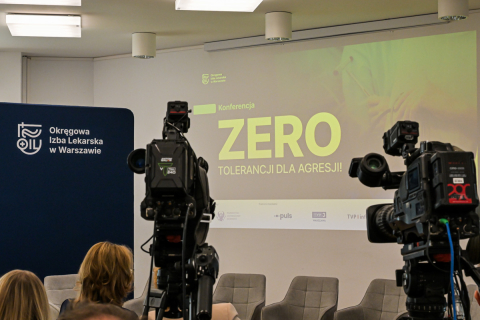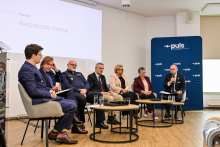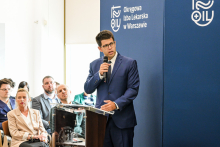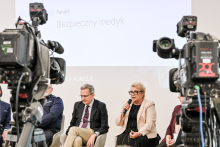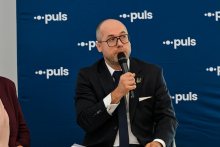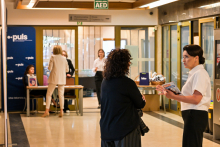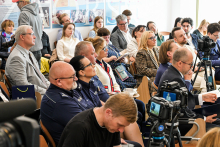“Medics are attacked more and more frequently, and this is becoming to feel common for society, so it is vital to say ‘stop’ now,” said Łukasz Jankowski, President of the Supreme Medical Council, in his opening remarks at the conference. “But no single institution or community is able to tackle this on its own. The problem goes beyond aggression at the doctor’s office, and it begins much earlier: with online hate, foul language, at school, in the kindergarten, through the pedagogical process. It starts with people failing to say, in a significant moment, that if you get into a fight, you’re no longer right, or that there’s zero tolerance for aggression.”
Alarming data
The president of the Supreme Medical Council cited data that over 80% of doctors had experienced inappropriate behaviors by patients; the figure is even higher for nurses.
“Here the data are even more alarming, because nurses are on the first line when it comes to helping patients – also when it comes to aggression" - said Łukasz Jankowski.
“The safety of medics and patients lies at the foundation of a well-functioning healthcare system. That’s why we need to speak with one voice,” emphasized Artur Drobniak, President of the Regional Council of Physicians in Warsaw.
Research cited by the Council (“Prokuratura i Prawo 1/2024) suggests that according to medics, aggressive behaviors most often involve insults and epithets (87.4% of responses), questioning their qualifications and experience (66.14%), or threatening with violence (30.71%). Over 20% of respondents have said they had been nudged, spat upon, shoved, or harassed.
The conference consisted of three thematic panels
Panel 1: “The safety of medics”, hosted by Artur Drobniak, President of the Regional Council of Physicians in Warsaw. During this part of the meeting, experts discussed the scale and nature of aggression against medical personnel, as well as on what to do in a dangerous situation.
The panelists included:
- Anna Dudzińska, President of the Regional Council at the Regional Chamber of Nurses and Midwives in Warsaw
- Dariusz Walichnowski, Warsaw Police Commissioner
- Małgorzata Szeroczyńska, Deputy District Attorney in Warsaw
- Mariusz Frankowski, Voivode of the Masovian Voivodeship
- Jacek Lachowicz, Chief Specialist at the Department of Criminal Law, Ministry of Justice
- Joachim Budny, President of the DTUP (Doctor’s Trade Union of Poland) for the Mazowsze Region
Panel 2: “Counteracting domestic violence,” hosted by Krzysztof Herman, Vice President of the Regional Council of Physicians in Warsaw. Invited guests discussed the scale of domestic violence in Poland, the role of the physician in recognizing the symptoms of violence against children and senior citizens, as well as the intervention process, including procedures related to the Blue Card. The following panelists joined the discussions:
- Marzena Okła-Drewnowicz, Secretary of State at the Chancellery of the Prime Minister
- Anna Mazurczak, Head of the Equal Treatment Department
- Captain Justyna Stanik-Rybak, Coordinator of the Blue Card procedure for the Masovian garrison
- Monika Horna-Cieślak, Ombudsman for Children’s Rights
Panel 3: “The safety of patients”, moderated by Aneta Grinberg-Iwańska, Director of Strategy for the Communications Department, Regional Chamber of Physicians in Warsaw. Guests invited to this panel discussed ways to protect patients against aggression, and how to cooperate with the police in this respect. The panelists included:
- Captain Krzysztof Maćkula, Deputy Head of the Prevention Department at the Voivodeship Police Headquarters in Radom
- Tomasz Socha, representing the Eastern Region of the National Chamber of Paramedics
- representative of the Patient’s Rights Ombudsman – Head of Cooperation Department
- Professor Błażej Kmieciak, Chief Coordinator for Mental Health with the Commissioner for Human Rights
